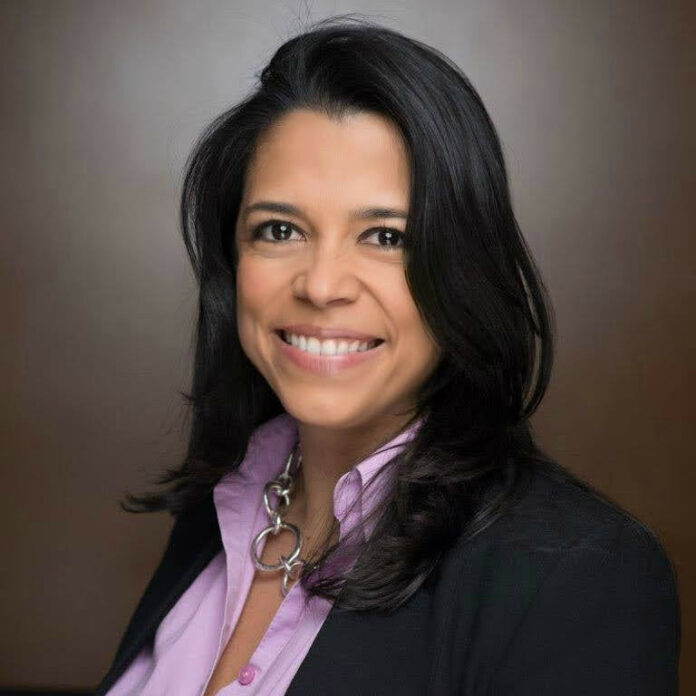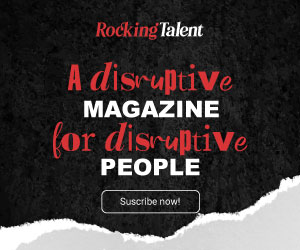Isabel is from Cali, Colombia. She started her journey in the United States in Seattle but now lives in Miami, Florida. Her career in Human Resources is a testament to her unwavering passion for creating positive change in the world. Through her remarkable journey, she has seamlessly woven her dedication to people with a profound commitment to Latin America region’s betterment.
Isabel’s strategic foresight and compassionate leadership have elevated her career and sparked a transformative shift in how HR is perceived in the organizations she has served. She stands as an inspiration, showcasing that true excellence in HR not only drives business growth but also fuels the positive evolution of society at large. Her story is full of challenging and rewarding moments she shared with us, smiling.
Isabel, tell us your story, how do you remember your first job?
I was born in Cali, Colombia. I am the daughter of two; I remember my childhood with happiness; I used to play a lot with my little brother, the love of my family always surrounded me. I studied at a catholic school, and I remember consistently challenging the concepts of religion as a dogma; despite this, I graduated with honors, achieving the highest score of “ICFES” (a high school test administered to high school students). This achievement opened the door for me to study at an excellent university. I decided to study industrial engineering, and in the middle of my studies, I came to the US to learn English. When I graduated, I moved to Bogotá to work as an HR coordinator for Procter & Gamble. It was a fantastic experience because it allowed me to understand the role of HR and how it contributes to delivering business strategies.
Why did you end up in HR if you studied an engineering field?
HR was not on my radar when I was studying engineering. I thought I was going to focus on logistics, but when I was invited to the position in Bogotá, it was something that I could not turn down, and I am glad I ‘didn’t because it made me discover a passion for the role HR plays in society.
How was the process to move to the United States?
The Procter’s factory I was working for closed, and I was hoping to find another job opportunity in Cali to return to be close to my family; however, I ended up finding another job in Bogotá again, this time with Arthur Andersen, where I got hired as a business consultant. After a couple of years, I moved to the US due to personal reasons. I moved to Seattle, which represented a significant change. When I was ready to look for a professional job, September 11th happened, so it was tough to find a job then. I did not want to stay home, so I joined TARGET as a cashier. I thought it was a perfect opportunity to practice English and learn about the US system; I got exposure to the “American way of living” thanks to this experience. I worked there for about ten months, feeling like I was on double shift, working for TARGET during the day and applying for jobs at night; looking for a job is work in itself.
It had to be very challenging…
Yes, but finally, I was contacted by a headhunter to talk about an opportunity for Starbucks. I remembered meeting the headhunter in the Starbucks coffee shop amid the delicious coffee smells, bags of Colombian coffee, and friendly baristas. I loved it and decided I wanted to join this company. I got an offer as a functional analyst in the HR Technology team. I think it was one of the happiest days of my life; it was my opportunity to enter the American workspace for a company I wanted to be part of. During that time, I decided to study and return to the university, so I joined Chapman University to do my master’s in HR. After graduation and some years in different positions, I set my eyes on the Starbucks Latin America division. I wanted to return to my roots and contribute to the region’s development. My dream became to be the leader of HR for Latin America at some point.
Did you achieve that dream?
I did; I packed my bags and moved from Seattle to Miami. It was a great experience. My role initially was to help establish the Starbucks culture as we opened new countries while setting the foundational people practices. I left the organization 20 years later as the HR Director for Latin America. Being part of the team that grew the brand from four to 22 countries was fulfilling.
Can you tell us about a particular project or achievement you are most proud of, and why it stands out?
As you know, in countries like Colombia, when you get to a certain age, it is hard to find a job, and I always find it very sad because, in the forties, you are at the top of your life. You have much experience, self-confidence, and many things to offer. So, when I was at Starbucks, we created a program designed to give career opportunities to 40+ people. I witnessed how senior citizens were proud of returning to work, feeling financially independent, and wanting to work shoulder-to-shoulder with the new generations. There are many great stories about how other companies replicated our approach; we also took the initiative to other countries around the region. Profound changes emerge when the courage to challenge the familiar exceeds the comfort of the status quo, when collective action transcends self-interest, and empathy becomes the cornerstone of our interactions. I am very proud of this initiative!
Your passion for HR strategic leadership is evident. What, in your opinion, are the key qualities that make HR a strategic partner to the business?
Critical Thinking, listening with curiosity, a learning mindset, and influencing.
As the Vice President of Human Resources at Newmont Corporation, what role does HR play in promoting diversity, equity, and inclusion within the organization?
Our role is to create the environment, implement the systems, and establish expected behaviors so everybody can deliver on the objectives. We need to push for progress, ask the right questions, and help the leaders to stay accountable. Diversity, Equity, and Inclusion are not an HR responsibility; it is the responsibility of all. The challenge is not only to distribute employment opportunities symmetrically but to guarantee the sustainability and richness of trajectories for those involved.
How do you foster a culture that embraces these values?
By modeling, making sure decisions align with those values, and holding myself and others accountable. It is about being a thought partner, available to have meaningful conversations, while helping leaders understand how they contribute or not to building the desired culture.





